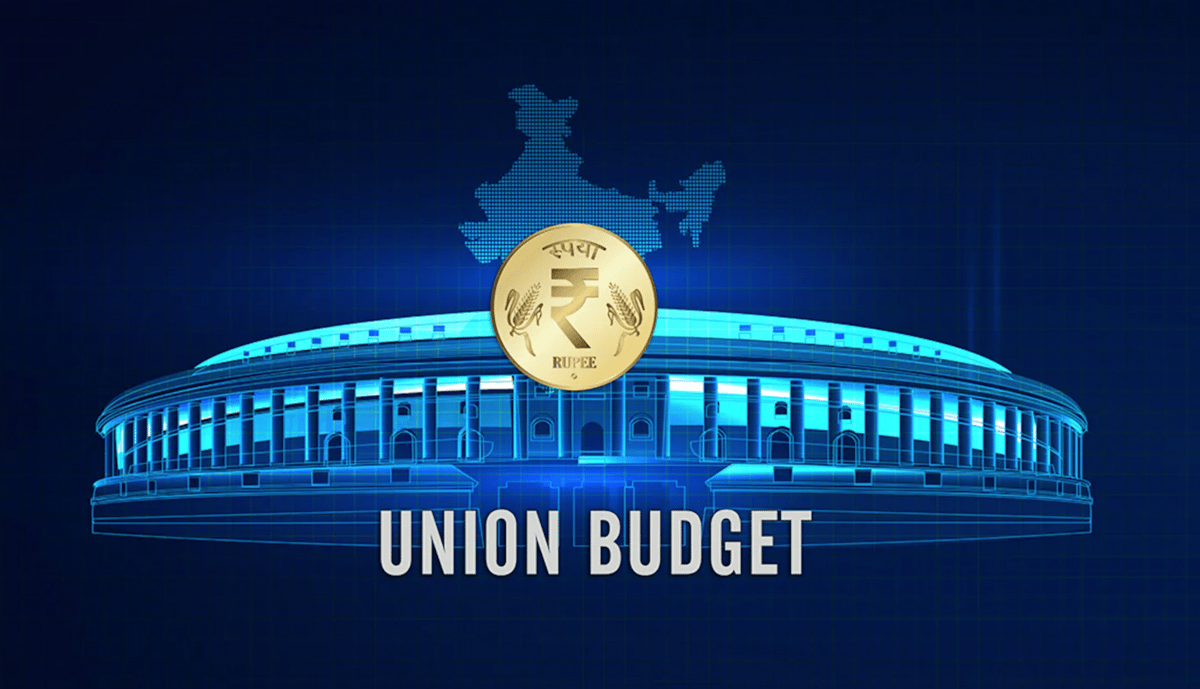- The FinOak
- Posts
- Investment opportunities before the Union Budget 2023-24 release!
Investment opportunities before the Union Budget 2023-24 release!
Investment opportunities before the Union Budget 2023-24 release!

Hello, FinOak readers! With the Budget Union 2023-24 announcement around the corner we have tried to compile sectors that can be the focus of the budget and can serve as good investment opportunities in our Personal Finance Column.In the weekly wrap up, read about the recession warning given by World Bank, Vodafone Idea debt crisis and a proud moment for Entertainment Industry at Golden Globe Awards. For Featuring Future Leaders column, this time we have Pranav Goel, Incoming Business Analyst at Kearney India. Read his inspiring story to know about that quality over quantity matters and if one has clarity and possess soft skills they can excel at life!
Column 1
Weekly Wrap Up
In today’s Edition
Not about Nato Nato, But Naatu Naatu
After COVID-19, Will the World now suffer from a Global Recession?
Vodafone-Idea Debt Crisis
1. Not about NATO NATO, But Naatu

Not about NATO NATO, But Naatu Naatu!
India's first Golden Globe Award, Yes!
SS Rajamouli directed ‘RRR’ earned a nomination in the Best Picture - Non-English Language and Best Song - Motion Picture categories and it went on to bag the Best Song award at the Golden Globe Awards 2023.
Choreographer Prem Rakshit said that he composed nearly 95 dance steps for the song - with 30 different versions of the signature step in the chorus alone.
The song was shot in front of the Mariinskyi Palace in Ukraine - a magnanimous sea-blue structure of baroque architecture - months before the war began! The film's director Mr. SS Rajamouli Sir said in an interview that "luckily, they gave us permission to shoot because the Ukrainian president (Mr Zelensky) was a television actor".
The other nominees who competed with RRR for 'Best Song- Motion Picture' were-
1) Carolina by Taylor Swift (Where the Crawdads Sing)2) Hold My Hand by Lady Gaga (Top Gun: Maverick)3) Lift Me Up by Rihanna (Black Panther: Wakanda Forever)
But,
What is the difference between Oscars, Emmy Awards and Golden Globe Awards?
Oscars, started in 1927, are considered the most reputed awards in the entire globe, rewarded for artistic and technical merit for the American film industry.
Emmy Awards, started in 1949, are the ones which consider only online serials/series across the globe .
While Golden Globe Awards, started in 1943, were initially introduced for movies but now are granted even to series and TV shows across the globe.
SS Rajamouli’s magnum opus 'RRR' has crossed the Rs 1100-crore collection mark at the worldwide box office in 28 days.
It earned Rs 1000 crore in just 17 days, becoming the third highest-grossing Indian films of all time. On March 25, it opened worldwide on around 8000 screens and collected around Rs 233 crore worldwide on its opening day.
Opening Weekend: $9,500,000 (68.2% of total gross)Legs: 1.47 (domestic box office/biggest weekend) (Legs is a term used to refer to how well a film holds onto its box office day to day and week to week)Domestic Share: 9.3% (domestic boxoffice/worldwide)
Theater counts: 1,200 opening theaters/1,200 max. theaters, 1.4 weeks average run per theater
Inflation Adjusted Domestic Box Office: $13,930,910RRR, which made over Rs 1200 crore globally, has already won a slew of international honours including Best Director for Rajamouli at the New York Film Critics Circle awards. RRR has submitted itself for consideration in various Oscar categories as well and is expected to be nominated in at least one category if not more. So, let's just wait for the next month and witness what Oscars have in store for this epic multi-starrer cinematic experience blockbuster!
2. After COVID-19, will the World now suffer from a Global Recession?

The World Bank issued a report signaling a potential downturn of the global economy and hinted that we are going to encounter a recession in 2023.
“Given fragile economic conditions, any new adverse development—such as higher-than-expected inflation, abrupt rises in interest rates to contain it, a resurgence of the COVID-19 pandemic, or escalating geopolitical tensions—could push the global economy into recession” the World Bank said in its latest Global Economic Prospects report.
This would be the first time in 80 years that the economy will be facing two recessions in the same decade.
It also projected that the global economy will grow by only 1.7% in 2023 and 2.7% in 2024.
Recession will be widespread across the economies, the estimates are revised down for 95% of advanced economies and 70% of emerging and developing economies.
Per-capita income growth for the emerging and developing economies in the next two years will be a meager 2.8%, a full 1% down from the 2010-2019 average.
In Sub-Saharan Africa which constitutes 60% of the world’s poor the growth of per capita income is expected to average only 1.2% which will lead to a rise in poverty rates.
“The crisis facing development is intensifying as the global growth outlook deteriorates,” said World Bank Group President David Malpass. “Emerging and developing countries are facing a multi-year period of slow growth driven by heavy debt burdens and weak investment as global capital is absorbed by advanced economies faced with extremely high government debt levels and rising interest rates. Weakness in growth and business investment will compound the already-devastating reversals in education, health, poverty, and infrastructure and the increasing demands from climate change.”
Projected Growth Outlook in different economies
United States: Growth is forecast to fall to 0.5% in 2023, 1.9 percentage points below previous forecasts and the weakest performance outside of official recessions since 1970.
Euro Zone: Growth is expected at zero percent, a downward revision of 1.9 percentage points.
China: Growth is projected at 4.3% in 2023, 0.9 percentage point below previous forecasts.
Excluding China, growth in emerging markets and developing economies is expected to decelerate from 3.8% in 2022 to 2.7% in 2023, reflecting significantly weaker external demand compounded by high inflation, currency depreciation, tighter financing conditions, and other domestic headwinds.
By the end of 2024, GDP levels in emerging and developing economies will be roughly 6 per cent below levels expected before the pandemic, the World Bank said.
3. Vodafone Idea Debt Crisis

Vodafone Idea, the third-largest operator in the Indian telecom market, is in negotiations with multiple banks about securing a loan for more than Rs 7,000 crore to help it overcome its debt crisis. Banks including the State Bank of India, HDFC Bank, Punjab National Bank, and IDFC First Bank have been approached for the same reason, but they are hesitant to offer new loans.
This comes after VI's commitment to pay Indus Tower's existing dues in full in January and Communications Minister Ashwini Vaishnaw's comment last week in Bhubaneswar that, "Vodafone Idea has many requirements. It has a particular capital requirement. So, how much capital is needed, and who will infuse, all these things are under discussion,"
Vodafone agreed to utilize the emergency loan to pay off a portion of the debt owed to Indus Towers. Indus Towers is the country's largest mobile tower installation firm that offers the infrastructure to telecom providers. The tower operator is experiencing financial difficulties as a result of Vodafone Idea's unpaid payments. According to the source, Vodafone Idea's monthly debt to Indus is expected to be in the range of Rs 250–300 crore, with a total debt of more than Rs 7,500 crore. If Vodafone Idea continues to default on payments, around 10% of Indus' yearly total revenue might be jeopardized.
Furthermore, not only Indus Towers is looking forward to receiving payment from Vodafone Idea. The telecom firm owes money to banks, ATC India, another telecom infrastructure supplier, Nokia, Ericsson, and other significant multinational telecommunications corporations. Vodafone Idea is likely to prioritize repayments to banks over other lenders since banks, as recognized financial organizations, may readily drag them before regulatory agencies such as the NCLT.
Previously, in September 2021, the government announced a revival package for telecom service providers, which included a four-year moratorium on the payment of spectrum and adjusted gross revenue (AGR) dues. It included a provision that allowed operators to offer the government stock in exchange for the accumulated interest on the postponed payment.
In Vodafone Idea's case, the total came to Rs 16,130 crore. Following the conversion to equity, the government would become the company's single largest stakeholder, with a stake of roughly 33%, while the promoters' interest would decrease from 74.99% to 50%. However, the government has said unequivocally that it would neither participate in management nor seek board participation.
While Bharti Airtel had also chosen to delay the payments, Vodafone Idea was the only operator to give the government shares in exchange for interest payments.
The misunderstanding began when the government believed that the Vodafone idea would be able to raise cash as a result of the relief it had offered. Vodafone Idea, on the other hand, anticipated that the government would first convert the dues into stock, providing reassurance to investors who wanted to invest in the firm, which ended up in this situation.
In addition, brokerage company CLSA stated on Tuesday that 2023 will be a pivotal year for Vodafone Idea. Data usage, tariff hike-led revenue growth, and 5G rollouts are among the major indicators for the industry this year. The company's market share may be lost as a result of Vodafone Idea's financial difficulties. Airtel is anticipated to lead the tariff war, while peers will closely monitor any developments regarding Reliance Jio's public offer.
Unless Vodafone Idea can get new funding quickly, it is probable that the firm will continue to lose users to its competitors. As 5G becomes the buzzword of the telecom industry, how much longer can a debt-ridden network that is behind on 5G technology continue to operate? The only way to know is to wait and see.
Column 2
In today’s Edition
Sectors to look out for investment before The Union Budget 2023-24
1. Sectors to look out for investment before The Union Budget 2023-24

We are currently in mid-January, companies are announcing their quarterly results, markets are unpredictable, the World Bank is anticipating recession, Inflation is coming down, unemployment is going up. Amid this situation everyone from big investor to small investor, businessmen to salaried employees, everyone is eyeing the Govt. as to what is there for them in this time Union Budget FY 2023-24.
The Budget which will tell us what the government's plans are for the country for this year and the same will be unveiled on Feb 1, 2023.
The Union Budget has a major impact on stock markets. In fact, analysts observe the movement of NIFTY50 and SENSEX to determine whether the investors are optimistic or pessimistic after the budget.
The announcements of schemes, tax breaks, relaxations made by the Finance Minister during the budget gives investors the idea on the sectors govt is trying to promote and in future which sector is apt for investment.
Well, here we are to suggest to you(Not a recommendation, one must do their own research) which are the sectors that you should look out for investment before the 2023 budget.
India is expected to maintain a positive performance in 2023 as a structurally upbeat country with a stable political regime, with some of the themes that could do well including higher consumption, improved financial inclusion, digitisation, and shifts in supply chains, among others.
The following sectors should definitely be looked upon before budget 2023:
Infrastructure
This time, thanks to the government's continued emphasis on developing world-class modern infrastructure such as highways, railways, mass transportation systems, and logistic parks, this sector is likely to outweigh the others in the budget. This is expected to boost the pipeline of orders for listed contractors and infrastructure developers, as well as capital goods, cement, logistics, and commercial vehicle companies.
Renewables
To combat climate change, several countries around the world, particularly India, are turning to renewable energy sources such as solar and wind. RK Singh, Union Minister of Power, New and Renewable Energy, recently stated that by 2030, India will have more than 65 percent of its power generation capacity from non-fossil fuels.
Defence
Because of healthy order books and the government's push for localisation, many wealth managers are bullish on defence stocks. Furthermore, expectations that the government will announce more indigenisation measures have prompted investors to buy defence stocks.
Pharma
Pharmaceutical Export Promotion Council of India (Pharmexcil), a body set up by the ministry of commerce and industry, has recommended several tax breaks to be included in the Union budget for FY24 and to correct certain duty anomalies to make the pharma industry more competitive.The export promotion body has sought higher income tax incentives for research and development (R&D) projects approved by the government, a call that has been backed by several industry leaders.
Battery manufacturing Industry
The government is expected to announce a policy for recycling lithium-ion batteries in the union budget in anticipation of greater adoption of electric vehicles as part of a move to meet its international commitment on cutting carbon emissions.The policy will have a focus on cluster-based recycling units, located to close by battery manufacturing factories and set up with government incentives, said two officials aware of the development.This could see the Centre propose an allocation of around ₹3,500 crore for the scheme
Given the consistent downtrend in IT and metal stocks in 2022, owing to recessionary fears and a Chinese slowdown, these two sectors have the potential to be dark horses in the coming year.
Fundamentally strong stocks in both of these sectors are good buys on dips because they are only going up in the long run. IT is one of the most important sectors for the Indian economy, and India, as the largest provider of global IT solutions, will continue to rely on it in the coming years. Once inflation and the interest rate regime have stabilized, IT stocks have a good chance of regaining their lost ground. Similar to metals, once the global economic slowdown is contained and COVID fears subside, these stocks will regain their luster and provide investors with solid returns.
Column 3
Featuring Future Leaders: Pranav Goel
Bagging a consulting role with no ‘Brand’ in the CV

Hello readers! I am Pranav Goel, a third-year student of Economics Honours at St. Stephen’s College. I finished my class 12th at The Doon School, Dehradun and I currently reside in Delhi. I hold a placement offer for Business Analyst at Kearney India. I have been involved with FinOak’s Not-For-Profit initiative from the start and held executive positions at a few societies in college. I have also interned at a boutique US-based investment and strategic advisory firm called Morris Street Advisors.
Apart from work, I am a Pianist, and I love playing football and golf.
It’s an honour to be featured in this newsletter where I plan to share my unique college experience and hopefully be of some help to the young readers in their own unique journeys. Happy Reading!
Starting College
I always wanted to join Stephen’s for Economics due to all the obvious reasons (partly also because I had heard a lot about it from my elder brother). Incidentally, I scored the least in the subject in class 12th (we all have made those stupid mistakes in a Board exam!), and the subject continues to be very difficult to score in at college. But it also carries with it several benefits:
- As a highly confused student in high school, Economics was my primary option as it does not block any career options (much like Engineering, but much easier!). Economics students proceed to all kinds of professions, be it corporate, UPSC, policy, academia, law. You name it, and you’ll find several Economics graduates in that profession.
- It is not a completely “Arts” subject, nor is it a hardcore natural science. It is somewhere in between, which also means it attracts a diverse student body with diverse aspirations: that attracted me to it.
I can say with absolute confidence that I have been in college only for 11 months, and not 2.5 years! Starting college online was no doubt a unique situation. The academic load was considerably light, and that left room for a lot of free time. Personally speaking, I was not very fond of online college.
In contrast, being on campus in college has been a great experience. The transition has taught me that online meets and webinars can only do so much; real value lies in meeting people and working with them face-to-face.
More on this later, first let us talk about something that most people lose sleep (and possibly hair) over in college. Internships and placements!
Internship(s) at Morris Street Advisors
For all the readers who don’t know this firm (which is 100% of you), Morris Street Advisors is a boutique firm that specialises in helping businesses grow: capital raises, go-to-market- anything under the sun. I had no specific project at my internship. I was involved in facilitating a number of deals where I had to directly and independently deal with executive leadership at start-ups.
Interestingly, this has been my only internship and I interned here twice!
My first stint with Morris Street was in the first year of college, when I was looking to gain experience- this internship allowed me great and direct exposure to the start-up world, which seemed like an exciting space to learn in. I returned to the firm in the summer after second year, with more knowledge and more confidence, and I was given the opportunity to play a front-end role at the company, as well as cater to clients with a global footprint.
Key Learnings and Takeaways:
- Much of my internship involved listening in on investor and client calls. Learning how to hold conversations with brilliant people is a skill that everyone needs to learn.
- It is not necessary to work at a big company. If it is learning you seek, you will get it best at a small firm where you have the opportunity to work with the core team, and with people who are much senior and much smarter than you. Small teams will also mean you get more meaty work, and you are no longer just a cog in the machine.
- Unstructured work can be a boon or a bane. It all depends on what you make of the situation. If you take initiative, then you will find yourself with greater responsibility, and you might just get to lead a project/deal.
- The biggest skill is in being shameless. Don’t be afraid to cold email and cold call people. It is more powerful than you can imagine!
- Everyone knows or can learn hard skills. It is soft skills that will differentiate you from the rest, and these take time and patience to refine. At the end of the day, any work you do will require dealing with people and that is the most important skill you can pick up early on.
One might ask: do recruiters even value internship experience at such small firms? This is a question that even I struggled to wrap my head around when I was contemplating returning to the firm after second year. What I have come to learn is that one must focus on the work and not the label. If you have done interesting and impactful work (and you can put it across, of course), interviewers will recognise that and applaud you for breaking away from convention. My unique experience at the internship has been by far the primary point of discussion in the several interviews that I have given.
Campus Placement Season (Consulting)
Hands down the busiest period of my college life! Unsurprisingly, it was also one where I learnt the most about a lot of things. I applied to all the management consulting firms that come to campus (McKinsey, Bain, BCG, Kearney and a few others). Much to my surprise, I got shortlisted at every company that I applied to without a single brand name in my CV.
Why, you may ask? I believe it was because of a unique internship experience, good positions of responsibility at college societies, and most importantly, a passion outside of what one considers “work” i.e. Piano. What recruiters look for is not a jack-of-all-trades and master-of-none, but rather jack-of-some-trades but master-of-one, or more simply a “spike” in your CV. It is therefore crucial that college students aspire to get a wide exposure to different spheres, but at the same time, specialise in one or two activities where they exceptionally excel (no pressure!).
As for the consulting interview preparation, I am sure the readers will find enough jargon and advice on it, and most of it is quite accurate in my experience. Advice I got from my seniors that really helped was:
- Don’t over practice cases because it sucks the creativity out of you. So aim to hit a sweet balance (50-60 cases at max)
- Find a trustworthy (and smart) case preparation partner and go through all kinds of cases with them to obtain consistent feedback
- Don’t be afraid to critically analyse your performance- that is the only way to improve in this process
A few tips from my side as well:
- Prepare a document where you write down all the personal interview questions you can ever anticipate from an interviewer and practise them. Tailor those answers according to the values, lingo and vibe of the firm you are interviewing at.
- If at any moment you feel “tired of doing cases,” STOP. You need to have a spontaneous and alert mind. It’s not a syllabus that needs to be covered in its entirety, it’s a way of thinking you need to be able to emulate.
- Do not be afraid to take help from friends, family, seniors, strangers, geniuses, not-so-geniuses. External feedback works best in helping you improve your case and personal interview giving skills. Everyone has something to offer!
- There will be ‘n’ number of people with seemingly better strategies, skills and confidence. Don’t get swayed- focus on yourself.
My experience through the entire process, now that I look back, was a lot of fun. I remember being on my toes the entire day, and applying my mind to very interesting problems day in and day out. Consulting firms also pamper prospective applicants with lunches and hampers- so that was always welcome!
However, on the other hand, placement season can also be very stressful. Consulting preparation is a 24x7 exercise. You never take a break from it. So it is very important to be mindful of your mental state in the entire process. Once the final interviews start, more uncertainty gets added to the mix: some interviews go well, some you absolutely blank out in, and some firms also reject you. Don’t take it as a comment on your competence. Take feedback, improve and move on. And always have your own methods of dealing with the pressure, stress and anxiety (even if it means playing first-person action games on your PS/PC!).
I faced rejections from 2 firms, and after the initial disappointment, I hounded the recruiters at these firms for genuine feedback on my interviews so that I could improve. Two days later, I landed the Kearney offer and the rejections didn’t pinch all that much anymore :)
Key advice: stressful periods like these accentuate the importance of the people you consider close. Keep them close, take their support, and find strength in those human connections. You will be surprised by how your loved ones can help you bounce back from really low moments in your life.
College Societies:
I was a part of three college societies in my first year, namely The Finance and Investment Cell, International Finance Student Association and The Economics Society. I feel it is a good practice to try your hand at multiple societies in your first year to get a wide variety of exposure. I dropped the third society in the second year due to time constraints (prioritising activities in second year is absolutely essential to be able to cope with internships and academics). I went on to become the General Secretary of the first and Vice President of the second society in my third year.
My primary motivation behind joining societies was to gain experience in dealing with people and leading teams in logistically heavy tasks. It was also the only avenue in online college to interact with peers and to find a friend group. Interestingly, societies and case competition teams is where I found my closest college friends! But I feel that societies pose a glass ceiling as to their potential to create learning. After having organised two to three events, one is well-versed with the art of organisation, and there is not much to learn beyond that. Even as part of the Finance and Investment Cell, I learnt next to nothing about finance in the first place, and that’s a glaring problem with college societies.
My advice would definitely be to join a few societies that you genuinely have an interest in. They teach you valuable and necessary skills. But also keep in mind that they may have limited learning to offer. Be on the lookout for new opportunities once that learning curve flattens!
This is exactly what I did with case competitions and my involvement with FinOak.
Case Competitions:
This is a great medium for learning hard and soft skills while in college. Case competitions help you learn domain-specific concepts, skills like deck creation, research, financial modelling, and presentation. They can also be a great way to intellectually engage with your peers and form great friendships. If you’re interested, start with national competitions conducted by prestigious institutions. Get a hang of it and win a few, and then move on to some highly rigorous international competitions.
Your experience with case competitions will help you in interviews not just as added pointers in a CV, but also as a more confident speaker who has familiarity with the basic concepts of business. This familiarity serves as a headstart when (and if) you sit for consulting interviews.
If there is an International Finance Student Association (IFSA) chapter in your college, do try to participate in their activities. It is a specialised group of finance and case competition enthusiasts who will guide you through the entire process and help you find similarly motivated people. Unlike typical college societies where logistics and organising events is the key learning, it is personal development that lies at the core of IFSA.
FinOak: doing something that gives me personal satisfaction
I joined FinOak in a very informal way when one of the co-founders shared with me that they are going to start an initiative to teach finance to underprivileged students. I immediately expressed my interest to be a part of this. I already had a few societies to contribute to and academics to handle. But like I said earlier, when the learning curve flattens, don’t be afraid of seeking new opportunities for learning.
It has been almost 10 months since I have been a part of the initiative; teaching students and making an impact on their lives has given me immense satisfaction. I hold this experience closer to my heart than any other college society work/event that I have pulled off.
The key takeaway here is not that you should sign up to join FinOak (please do if you want to!), but rather to find something during college that you love doing. Be it teaching students, learning an instrument, playing a sport, spreading awareness etc. This is where youth organisations can prove to be very useful.
However, be cautious of which organisation you join: your learning and experience will depend on the quality of people you choose to associate yourself with- have high standards and do your due diligence before joining any organisation. If you find that you have enough on your plate and you are satisfied with your growth, then don’t stretch yourself too thin and join something just for the sake of it.
Networking: most people underestimate the power of a good network. Networking is indeed a skill and it is an effort. It has delayed and indirect benefits and requires time. But it is equally, if not more, beneficial as you proceed in your career. Do not hesitate to meet people face-to-face and hold conversations with them and create long-lasting connections. Not every outing you have after college needs to be with your friends. The ability to create strong connections with people who are not strictly your best friends is what differentiates a successful person from a smart one.
That is all from my side, I have tried to cover most aspects of my journey in college. A few general tips that I’d like to leave you all with are:
There is absolutely no ideal profile. If someone pressures you into creating an “ideal prototype” CV, run as far away from them as possible!
Focus on getting a wide exposure when you start college, and keep prioritising and specialising as you progress in college.
Identify at least one area where you want to break barriers and excel.
Do not be fooled by people who have 5 internships, 3 organisations, 3 societies and infinite professional courses and case competitions. Chase quality and not quantity. Focus on what you find interesting, what you are passionate about, and do that better than everyone else.
We are no longer in COVID times, so normalise doing one internship each in your first and second years. That has been and is more than enough (unless you want to do more). Enjoy campus life- it won’t ever come back!
Take professional courses that interest you and will help you gain the necessary hard skills (don’t do them for the sake of it).
Find and nurture a non-work passion that keeps you sane: it can save you from burning out!
Study only as much as you need to cross the minimum threshold GPA that is considered the gold standard by top firms (this depends from college to college). Beyond that, free up your time for other things!
If you’re interested in music, consulting, or wish to know more about my story in college, feel free to reach out to me over LinkedIn. I’d be happy to connect and chat over coffee :)
This will be it for this week, see you next Friday. Best RegardsTeam FinOak